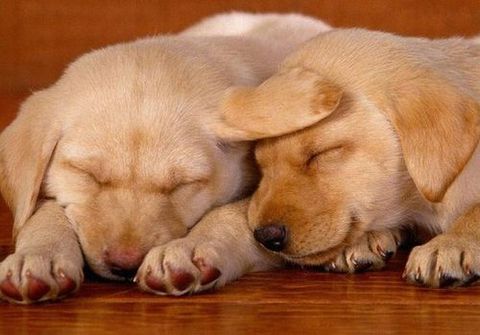 |
||
Dogs and Poisons--Preventing pet poisoning.Dogs and poisons has been very topical lately. It seems that the cases of dogs being poisoned is an increasing problem. Primarily, because there are more toxic substances in general use. Your pet doesn't even have to swallow a liquid poison--just merely walking through it and then licking his paws is enough to make your dog ill."Curiosity killed the cat". Pets are naturally inquisitive, and this one characteristic alone can lead them in to danger. But if you follow the maxim that prevention has to be better than cure. Then, quite often, with a bit of forethought, accidents can be prevented. The poisons that your dog your dog is most likely to encounter are in your home. The most common are your own tablets and medicines--keep these well out of reach, and preferably under lock and key. Your dog's medicines, and pesticides such as flea collars, tick collars, powders and sprays are all potentially lethal.
Likewise, the next category can be found almost anywhere in most homes. These are household chemicals, bleaches, detergents, fabric softeners, disinfectants, antifreeze, various insecticides, etc. These are accidents waiting to happen if they are not stored safely. Some of these substances after you have used them will leave a residue around the top, and neck. Licking antifreeze, bleach, rat poison, and several other toxic concoctions will not just make your dog ill, they have the potential to kill him. Unfortunately, pets are incapable of determining what is good or bad for them, you need to do it for them. The yard is another area to be aware of. Do you have a shed to store your pesticides, fertilizers, insecticides, turpentine, barbecue lighter fluid, paint stripper, thinners, kerosene, gasoline, rodent poisons, herbicides, etc? Do you lock it? The yard and gardens are areas where your pet has free time, often without much supervision by you. If you leave open bags or tins, lying around your almost guaranteed that your dog will be snooping around them--especially when your not watching. Household poisons, and a general lack of thought, are the main dangers to your pet--I speak from personal experience. There is a long list of poisonous plants including cyclamen, yew, tulips, foxglove, rhododendron, daffodil, cyclamen, oleander, rhubarb, lilies. Similarly chocolate, raisins and now even grapes eaten in large quantities are said to pose a threat. But none of these pose anywhere near the threat that domestic chemicals found in your home, and yard do. What to do if you believe that your dog has been poisoned.Accidents do still happen even to the most vigilant of us. Consequently, if your dog has ingested a substance that you believe to be harmful, or you suspect that your pet has been poisoned--do the following:
Don't try to make the dog sick. In the U.S you can phone the National Animal Poison Control Center at 1-900-680-0000. And/or phone your veterinarian immediately. Don't hesitate, because your pet seems okay. Symptoms can vary considerably and take time to fully materialise. Retain any packaging that reveals what your pet might have swallowed so that you can tell the vet. Take the advise that your vet gives you, again don't hesitate. Household poisons and their increasing threat to your dog's health is a fact of life. So, don't be negligent--remember--prevention is better than cure. And make your home a truly safe place for your pet's.

"
| ||
|
| Dog Health Start Page | Dog Neutering |Caring for an Older Dog |Dog Names Start Page |Dog Videos Start Page | Return to Homepage Or you can .........
|
||
|
|
||
